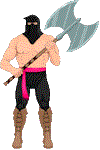Dark Ages & Early Feudal at Lisbon 2023
Anglo-Irish vs Hindu Indian
Game 1 Anglo-Irish vs Nikephorian Byzantine
Game 2 Anglo-Irish vs Hindu Indian
Game 3 Anglo-Irish vs Konstantinan Byzantine
Game 5 Anglo-Irish vs Ghaznavid
With one game under their belts, the now self-appointedly mighty Anglo Irish army was veering ino the excited side to see who it could surprise and be underestimated by next
The end result was a locally-commanded Hindu Indian army, offering the Anglo-Irish a rare chance to see whether elephants likes potatoes in the same way that hippos don't do all that well with a diet of cabbages
Hindu Indian is a more aggressive version of the textbook Classical Indian list, with Impact-capable charging infantrymen to slot in between the wall of elephants instead of bowmen or the more defensive-minded half and half sword/bow units.
It can start to have some interesting mounted troops, but really the easiest way to operate it is a solid line of Impact foot and elephants with obligatory skirmishers in front for missile cover
The lists for the Anglo-Irish and Hindu Indian from this game, as well as all the other lists from the games at Lisbon can be seen here in the L'Art de la Guerre Wiki.
I'd ended up defending so had dropped a couple of fields and also a couple of plantations on table, on the assumption that they would help narrow the open part of the table and provide places for some of my Irish troops to hide and pop out to outflank what is traditionally a very linear and difficult to dance-with opponent
The Indians had also dropped a lot of terrain of their own too, and of course set up to sweep forward in a line and engage whatever elements of my army they happened to meet
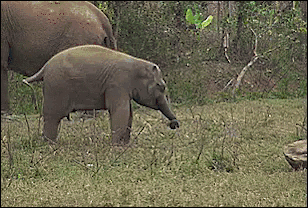
A prominent plantation on my right had allowed the Irish ally to hide completely, and along my line many of the English knights had also taken the opportunity to dismount against the mighty beasts
The ambush didn't however last long, as the Irish sprang forth and raced across the table towards one of the bowmen-rich sections of the entire Indian line which juicily happened to be deployed right in front of their plantationic hiding place
Indian arrows darkened the sky, a deadly cloud descending upon the Irish, piercing through the air with a cruel, silent efficiency.
The main body of aggressive elephants and Impact charging foot were going straight down the middle of the table - a situation which really didn't suit some of the English longbowmen in the corresponding position on my side of the board
They swiftly turned and started marching out to the flank where some much more luscious Indian cavalry were lurking optimistically, in the hope the Anglo-Irish obsession with taking on their pachyderms head-on would mean the sub-par Indian horsemen would have a sneaky chance to nip around an elephant-obsessed flank

Caldo Verde Carnival! The Irish weren't interested in mucking about - they charged across the fields ignoring all potato-based agricultural opportunities and smashed headlong into the middle of the Indian line of archers, relying on their shields and their ginger Gaelic good fortune to counter the rather important fact that the line of archers was way wider than their own formation.
With dismounted, 2-handed swordsmen Knights to the fore the Anglo-Irish army just about manages to get itself into a coherent line in time to take the inevitable Hindu Indian charge on their mail-clad chins.
Over to the left however the handful of Indian horsemen suddenly find themselves rather outmatched, and instead of planning a flank sweep of their own they begin to consider the merits of laying down their 15mm metal lives to try and slow down an Anglo-Irish rollup of their elephants right flank
The Rasthrakuta Dynasty
 Battle is joined in a mighty cacophony of real trumpets, elephant trumpets and no doubt some rather nervous (but not hippo-standard) trouser trumpets from the men of both sides who's fate would be decided in the next few moments of mortal combat and dice excitement"
Battle is joined in a mighty cacophony of real trumpets, elephant trumpets and no doubt some rather nervous (but not hippo-standard) trouser trumpets from the men of both sides who's fate would be decided in the next few moments of mortal combat and dice excitement"
Men scream in agony, their cries lost amidst the cacophony of battle, as the ground turns slick with mud and blood, and elephant wee, swallowing the fallen without mercy.
The theory of using dismounted knights to absorb the elephant's initial charge soon faltered like Irish mist as the Indians smashed through the line of recently converted infantry as if they had still been horse-borne
What had been planed as a grudging stalemate and war of attrition was now a bit of a shambles and a potentially unfixable problem - the Anglo-Irish commander (also a trophy from the event I'd played at in Normandy earlier this year) rallied his men to patch up the fast-evolving catastrophe
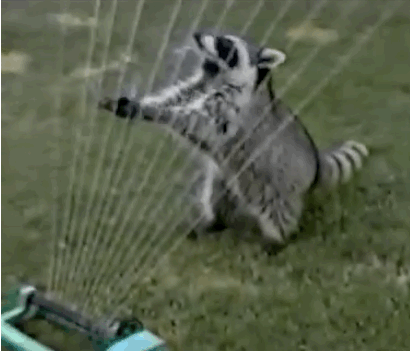
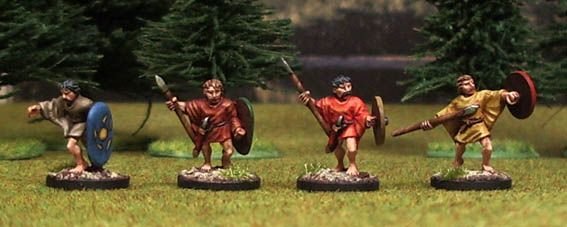 But elsewhere on the tabletop the eager Irish were faring far better, cutting a swathe through the hapless and seemingly almost defenceless Indian archers in close combat.
But elsewhere on the tabletop the eager Irish were faring far better, cutting a swathe through the hapless and seemingly almost defenceless Indian archers in close combat.
As the Irishmen's mighty almost viking-esque (hey, we all love a morph) axes cut through the late morning air yet more Anglo-Irish troops swarmed forward to join in the attack, led by bog-hopping Kern javelineers who eagerly sought out their natural prey, elephants the like of which they had of course never seen before in their whole lives
OK, that was the theory. The reality was rather different as the Irish warriors, presumably exhausted by the excitement of having sprung such an early ambush, suddenly collapsed like a deck of green-tinged playing cards with leprechauns instead of jokers, and were removed from play by a surge of elephant-led aggression. The second line of decidedly Anglo-looking Anglo-Irish troops girded their loins and prepared for the mighty beasts assault
The Anglo-Norman conquest of Ireland
The Anglo-Norman invasion of Ireland in the 12th century occurred in a complex political and cultural context, with many of the key actors in a state of flux. force in the land who were making things happen were however of course The Normans
In the 11th century, the Normans, originally from Normandy in France, had successfully invaded England under William the Conqueror in 1066. By the 12th century, the Normans had also expanded their influence into Wales and parts of Scotland. Their military expertise and feudal system of governance made them a dominant force in the British Isles, and their interest was very much in continuing this expansion, with Ireland a prize high on that list.
The excuse they had been looking for came when Diarmait Mac Murchada, the King of Leinster, was deposed by a coalition of Irish kings in 1166. Seeking assistance to regain his throne, he turned to the Norman lords in England for support. In a striking echo of the Normans reasons for invading England, Diarmait's appeal for help provided the pretext for the Anglo-Norman intervention in Ireland.
In the centre the battle had stabilized, with the resistance of the dismounted knights managing, at last, to stem the tide of elephantine success and establish some sort of ongoing combat equilibrium
Piri Piri Palooza! With the Indian cavalry skittering away into the distance in the face of some Knightly charges, the Colonist spearmen suddenly found themselves in prime position to take on the rollup duties at an unopposed end of the Hindu line

With both armies experiencing devastating collapses in parts of their lines, the battle started to break up into a series of independent yet still desperate and brutal struggles in which sinew and willpower were the forces gaining ascendancy over weaponry and armour.
The Irish ambushing force was in tatters, but it had still wrought havok on the Indian formation opposite
More importantly the losses it had inflicted on the vulnerable Indian archers were significant, and with damage markers littering the bases of practically every elephant on table, the Indian army was starting to look increasingly threadbare as the game progressed inexorably onwards
Queijo Quake! The Indians needed some quick wins, and with the Irish still reeling from their mixed back of success and failure, there were plenty of opportunities for Indian heroism all the way across the plain of battle
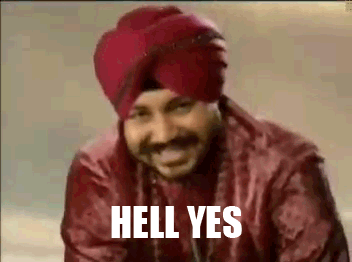
![]() The tide of battle had now decisively turned in the Anglo-Irish forces favour, as the Indian elephants shifted from being the cutting edge of a lengthy battle line into a series of isolated and surrounded bastions against which the forces of potato-based violence were washing in ever more stormy waves
The tide of battle had now decisively turned in the Anglo-Irish forces favour, as the Indian elephants shifted from being the cutting edge of a lengthy battle line into a series of isolated and surrounded bastions against which the forces of potato-based violence were washing in ever more stormy waves
Francesinha Frenzy! Leading his men bravely from the rear, the Anglo-Irisg commander urged the Colonist spearmen onward as their repeated assaults struggled to make the decisive breakthrough against the thick duvey-like coverings of the Hindu elephant corps.
Would the mighty beast falter, or would the unwillingly impressed spear carriers' will to fight manage to remain intact long enough to press their army over the finish line?
The Guptas
Yes! Anglo-Irish detente had defanged the might of the Hindu Empire, and elephants would no longer dream of tramping along the banks of the Liffey, sipping Guinness through their trunks as their mahouts surveyed their conquests in far off lands.
The Result is a win for the Anglo Irish, with the Indian attack disjointed by the ambush, blunted by the wall of dismounted knights, and finally overwhelmed by the rolling up of its flanks
Click here for the report of the next game in this competition, or read on for the post match summaries from the Generals involved, as well as another episode of legendary expert analysis from Hannibal
Post Match Summary from the Anglo-Irish Commander

In the grand tapestry of life, there are moments that define us, that test the mettle of our character, and today, my dear compatriots, we have emerged triumphant. It is a testament to the impeccable strategy, the stiff upper lips, and the unwavering determination that epitomizes the spirit of our great nation.
SHOWER OF BASTARDS! BOWMEN! DRINK! ARSE!
As I stand here, I am reminded of the words of our revered Shakespeare, who once wrote, "We few, we happy few, we band of brothers." Indeed, today we stand as a band of brothers and sisters, bound together by a common purpose and an unshakeable belief in the power of conviction. Just as Jeeves ensures that Bertie Wooster remains presentable even in the most trying of circumstances, so have we emerged victorious, and for that, I extend my heartfelt thanks and appreciation to you all.
EARWAX! DRINK! FECK! Text analysis
Hannibal's Post Match Analysis
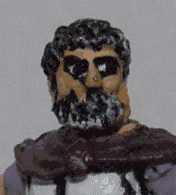 Verily, I, who in a former life didst traverse the Alpine heights with the mighty pachyderms at my command, must grudgingly acknowledge thy triumph, Father Jack.
Verily, I, who in a former life didst traverse the Alpine heights with the mighty pachyderms at my command, must grudgingly acknowledge thy triumph, Father Jack.
'Tis a victory most unexpected, yet thine own unique brand of leadership hath proven victorious over the formidable might of the Medieval Hindu Indian empire, and their elephants, no less
In my previous existence, I, Hannibal, didst become legend, the scourge of Rome, and a name that struck terror into the hearts of my adversaries. My genius on the battlefield was unmatched, but now I bear witness to thy, shall we say, unorthodox methods.
Thy 'drink' and 'feck' may be thy rallying cries, Father, but in this era, 'tis 'javelin' and 'spear' that hath carried the day. A most curious twist of fate, indeed
Mayhaps it is the capricious wheel of destiny that hath brought me to recognize thy unexpected prowess on this field of honour? So, Father Jack, I, who once terrorized Rome itself, do hereby grudgingly offer thee my felicitations. Thou hast carved a niche in history alongside Hannibal, the ancient conqueror of nations, in this most unusual turn of fate which we can only puzzle as to whether it will be repeated in the next game?
Click here for the report of the next game in this competition
You may also like....
Game 1 Anglo-Irish vs Nikephorian Byzantine
Game 2 Anglo-Irish vs Hindu Indian
Game 3 Anglo-Irish vs Konstantinan Byzantine
Game 5 Anglo-Irish vs Ghaznavid
View My Stats for My Match Reports Pages
